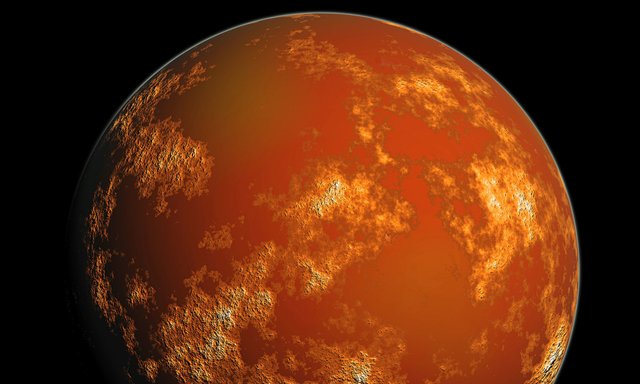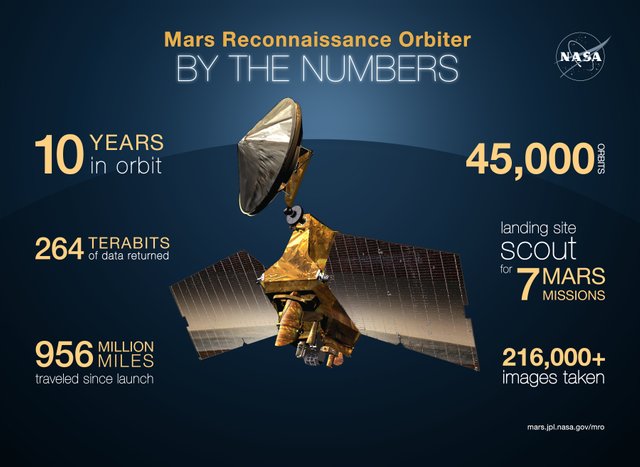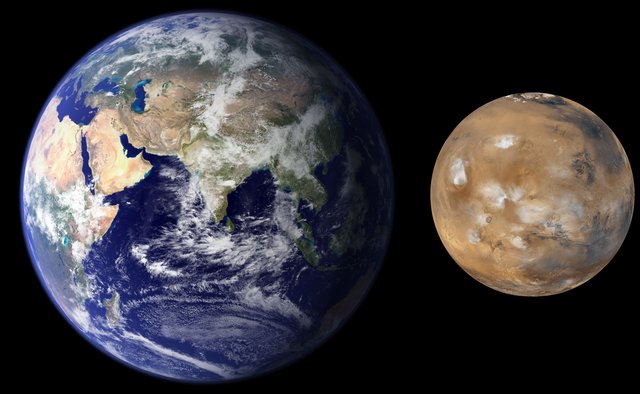
This week Science presented an article about the presence of water on our neighboring planet Mars.
If you haven’t lived under a giant rock, you most likely read before about the discoveries of water on the planet. It’s since previously known that that ice covers roughly a third of the planet's surface. Its purity is not determined, however.
By resent observations, observational images revealed that the frozen water masses are both thicker and purer than the previous hypothesis, and much more comfortable access close to the surface.
Mars Reconnaissance Orbiter

With images from the space probe Mars Reconnaissance Orbiter, MRO, researchers have found eight mountains with thick slopes of ice.
The ice is just a few meters under the surface and, at places found by researchers, visible on the images. At specific areas, the ice is as thick as 100 meters. With clean surfaces, this gives clues to a gravel free and pure ice.
Ice forms when the planet tilts enough for the planet to heat up around the poles, something that happens every 120 000 years. At this time the frozen water in north and south evaporates and falls as snow on the mountains around the equator. When the snow freezes on the mountains, it forms sheets of very pure ice close to the surface.
Mars exploration
As humans, we depend on water sources to survive. Exploration of Mars would not be an exception to this. With the discoveries of frozen water close to the surface, travelers would not need to bring vast quantities of water with them, and extraction of water would be much more possible.
The frozen water can also, when examined closer, be used for determining the history and climate of the planet, just as we do on earth today.
According to NASA, space explorations and walks on Mars will be possible within 20 years!
Large change in views of Mars recent decades

Mars have come a long way since a few decades ago. In the 80s, scientists believed that Mars had very little to no possibility of life. Mars was thought to be closer alike to our moon than to Earth. It's more and more like a distant cousin these days, even a grandfather if you would believe some theories of origin.
This proves that life is not only possible, but likely.
Who is first in line? 😎

Sources
- Colin M. Dundas et. Al. "Exposed subsurface ice sheets in the Martian mid-latitudes", Science 2018, DOI:10.1126/science.aao1619.
- NASA
- Wikimedia
Vote for me as Witness
Enjoy what I contribute to the community? Consider voting for my Witness on Steemit or BitShares. You can also vote for me as a Steemit Proxy Voter. On BitShares I would like to promote @fav as an excellent proxy.
By voting for me as a witness, you will support an active witness on Steem and BitShares.
Read my Witness Posts: BitShares, Steemit
Downvoting a post can decrease pending rewards and make it less visible. Common reasons:
Submit
Thank you steemSTEM :)
Downvoting a post can decrease pending rewards and make it less visible. Common reasons:
Submit
Hi, I found some acronyms/abbreviations in this post. This is how they expand:
Downvoting a post can decrease pending rewards and make it less visible. Common reasons:
Submit
In the future Mars could be the planet that humans inhabit this thanks to the water, but it is still too early to know because we do not know if your atmosphere would be perfect for any human to breathe, time will tell us what will happen to this planet
Downvoting a post can decrease pending rewards and make it less visible. Common reasons:
Submit
Each of your posts is very interesting to me!
Improve the quality of future posts.
Downvoting a post can decrease pending rewards and make it less visible. Common reasons:
Submit
If humanity want to survive, then we must fly into space and colonized new planets.
Downvoting a post can decrease pending rewards and make it less visible. Common reasons:
Submit
I wonder what is the water situation mars vs venus, because I heard venus should be better to colonize than mars - in theory.
Downvoting a post can decrease pending rewards and make it less visible. Common reasons:
Submit
Interesting, will keep myself updated on any theories I come across about that.
Downvoting a post can decrease pending rewards and make it less visible. Common reasons:
Submit